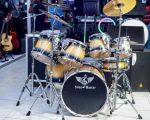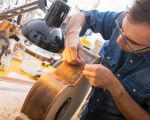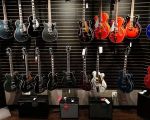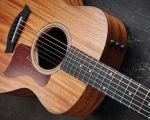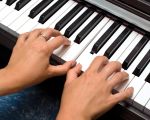Best Instruments for Beginners Learning Jazz Music
When it comes to learning jazz music, the right instrument can make all the difference. As a beginner, diving into the world of jazz can feel overwhelming, especially with the wide variety of instruments that are commonly used. I remember the first time I picked up an instrument to explore jazz. The excitement was there, but it was also clear that the right instrument could shape my entire musical journey. Whether you’re a complete novice or have a little bit of experience, it’s essential to choose the right instrument for your skills and preferences. In this article, I’ll walk you through some of the best instruments for beginners learning jazz music.
1. Saxophone – The Heart of Jazz
The saxophone has long been one of the most iconic instruments in jazz. From the smooth, mellow sounds of John Coltrane to the bold tones of Charlie Parker, the saxophone has earned its place as a jazz staple. As a beginner, the alto saxophone is the most popular choice. It’s smaller and easier to handle compared to its larger counterparts, the tenor and baritone saxophones.
If you’re drawn to the saxophone's rich and expressive sound, you’ll enjoy how it can convey emotion through every note. While it does require some practice to master, the alto saxophone is a great starting point for a beginner. You can easily find affordable options and start learning with a private teacher or by using online resources. The fingering system is also quite logical, which helps beginners get started on the right foot.
2. Trumpet – A Brilliant Choice for Jazz
The trumpet is another essential instrument in jazz. It is bright, bold, and filled with character. The trumpet’s sound can be piercing, but it can also be soft and introspective. If you're considering the trumpet, you're stepping into a tradition of jazz legends like Louis Armstrong and Miles Davis.
For beginners, the trumpet is relatively easy to learn in terms of embouchure (mouth position) compared to wind instruments like the trombone. The challenge comes with mastering the different notes and controlling the pitch. However, once you’ve grasped the basics, you’ll find the trumpet incredibly rewarding, and you’ll have endless possibilities to experiment with jazz improvisation.
3. Piano – The Foundation of Jazz Harmony
In jazz, the piano holds a unique position as both a rhythm and harmony instrument. Unlike wind instruments, the piano allows you to play multiple notes at once, providing a solid foundation for chords, improvisation, and accompaniment. As a beginner, starting with the piano gives you a strong understanding of harmony, which is crucial for all jazz musicians.
The best part of learning the piano is that you can play both melody and harmony at the same time, allowing you to explore different facets of jazz music. It also offers a clear view of music theory, making it an excellent choice for those who want to delve into understanding jazz from the ground up. Additionally, many jazz pianists like Thelonious Monk and Bill Evans have set the bar high, providing inspiration for every aspiring musician.
4. Double Bass – The Backbone of Jazz Rhythm
When you think of the rhythm section in a jazz band, the double bass (or upright bass) immediately comes to mind. Known for its deep, resonant tones, the double bass is integral to the groove and rhythm of jazz. Although the size of the instrument might seem daunting at first, it’s a fantastic choice for beginners looking to develop a strong sense of timing and rhythm.
Learning the double bass requires precision, but it’s incredibly rewarding. Unlike the electric bass, which is more commonly found in rock music, the double bass offers the opportunity to learn both pizzicato (plucking the strings) and arco (playing with a bow). The combination of techniques makes it versatile in various jazz styles, from bebop to swing.
5. Guitar – A Versatile and Popular Jazz Instrument
While the guitar is widely associated with rock and pop music, it has also made a huge impact in the world of jazz. Jazz guitarists like Wes Montgomery and Joe Pass revolutionized how the guitar is used in jazz. The guitar’s versatility makes it a great instrument for beginners, whether you're interested in playing rhythm or lead jazz guitar.
One of the advantages of learning jazz on the guitar is its portability. You can easily bring your guitar wherever you go, and with the right resources, you can start learning on your own. It might take time to master the different chord voicings and fingerpicking techniques, but with practice, you'll be able to play both rhythm and improvisational solos, giving you a deep connection to the music. Starting with a basic acoustic or electric guitar is a great way to dive into jazz.
6. Drums – Keeping Time with Jazz Percussion
Jazz drumming is much more than keeping the beat – it’s about creating a dynamic and expressive pulse for the band. If you’re someone who loves rhythm and wants to learn how to interact with other musicians, the drums may be the right fit for you. Many jazz drummers like Max Roach and Art Blakey have redefined the role of percussion in jazz, and their influence is felt to this day.
For beginners, starting with basic snare drum techniques and gradually learning the different cymbals and bass drum techniques is a solid approach. Jazz drumming requires an understanding of swing rhythms and syncopation, so it’s helpful to find a teacher who can guide you through the intricacies of jazz timing. Once you’re comfortable with the basics, you’ll find the drums an incredibly expressive and rewarding way to experience jazz.
Choosing the Right Instrument for You
Choosing the right instrument to begin your jazz journey depends on your personal preferences and musical goals. For example, if you're fascinated by melody and harmony, the piano or guitar might be the best place to start. On the other hand, if you're drawn to rhythm and groove, the drums or double bass could be the perfect fit.
Regardless of your choice, it’s essential to start with the basics and take things one step at a time. Remember, jazz is all about improvisation and creativity, so don’t be afraid to experiment with your instrument and explore the endless possibilities it offers. Above all, enjoy the process of learning, and let the music inspire you to keep improving.

